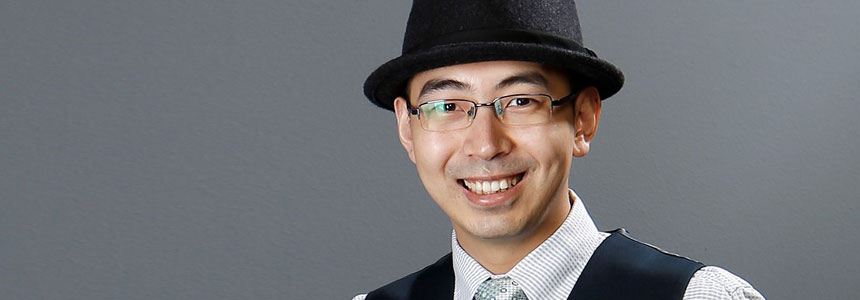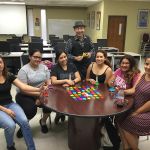
Song An, Ph.D.
Assistant Professor, Mathematics Education
Department of Teacher Education
College of Education
UT El Paso
Teaching is a bonus of my life. The process of knowledge delivering made my life more colorful and enjoyable.
I joined the University of Texas at El Pasoas a faculty member in 2012, with a Ph.D. in Curriculum and Instruction with concentration in Mathematics Educationfrom Texas A&M University. Before my doctoral study, I received my bachelor degree in musicologyfrom Nanjing Arts Institution, with a specialization in instrument design technologies and acoustical engineering. While studying at a musical conservatory as a college student, with a specialization in instrument design technologies and acoustical engineering, I first learned of the potential power to create music by understanding mathematics. After repeatedly taking apart a piano featuring over 8,000 individual parts, and then putting them back together like a giant three-dimensional puzzle, I finally managed to tune the more than two-hundred-twenty unique strings by equal tempering an octave of chromatic scale, and then finding a perfect unison and octave for all 88 keys. During such experiences, I came to recognize that the relationship between mathematics and music is more than just one of being interrelated. Instead, music and mathematics is like a pair of symbiotic organisms, and the ability to understand one through the lens of the other has helped contribute towards many of the great musical and mathematical breakthroughs that have occurred during the two field’s respective development.
My distinctive academic background has led me to develop a unique research focus, which focuses on the study of music-themed mathematics curriculum and mathematics centered interdisciplinary instruction. As a pioneer in research focusing on developing music-themed activities into STEM learning resources, I am one of the first educational researchers nationwide who dedicate the effort on systematically and empirically studying the impacts on mathematics education resulting from project based activities involving authentic music-themed learning for K-12 education and teacher education. By identifying that most of the existing resources and popular strategies for using music in math teaching are actually primarily entertainment-oriented, providing a flimsy cover story to the lessons instead of truly connecting with the math content. Such misguidedly superficial misuse of music-themed activities in mathematics class is neither helpful nor relevant to authentic mathematics education. Different from curriculum theorists who hypothetically discuss the possibilities of music-mathematics integrations or cognitive phycologists who investigate how passively musiclistening may serve as an external stimulus on cognition proficiencies in lab settings, I am strived to evaluate how actively music creation can be developed as mathematics pedagogies in classroom settings.
As a doctoral student, some of my preliminary music-mathematics interdisciplinary activities have developed were published in my book Music-Math Integrated Activities for Elementary and Middle School Students(An & Capraro, 2011). This book was reviewed and recommended by the National Council of Teachers of Mathematics [NCTM] in the August 2014 issue of the journal Teaching Children Mathematics as an example of a high-quality “back-to-school resource”. Based on this curriculum and its later revisions, in the past five years, my explorations of the effects of music-mathematics integrated education include analyzing over 200 teachers’ instructional designs of music-mathematics integrated lessons and examining over 80 of such lesson implementations to more than 150 elementary school students. Throughout of my career, my series of empirical research were dissimilated as 30 peer reviewed research articles to 20 different journals in the field across (1) mathematicseducation, (2) teacher education, (3) curriculumstudies, (4) arts education, and (5) educationaltechnology.



